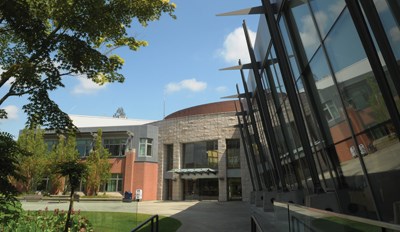Coquitlam’s efforts to increase the number of purpose-built market-rental units — a key goal in the city’s Housing Affordability Strategy (HAS) — is already starting to see some positive results.
And staff said it is likely that some tweaks will be made to the HAS to encourage the construction of more three-bedroom market rentals, which could be coming in the new year.
Since the program was adopted last year, the number of approved market rental units has hit 95 while another 154 are under council consideration, 630 are under application and discussions are underway with the development industry for another 400 to 500 units.
In a report to council, staff compared the numbers over the last year to the period before the HAS was implemented, when 67 market rental units were built between 2007 and ’15.
“We are off to a good start,” said Jim McIntyre, Coquitlam’s general manager of planning and development, before presenting an annual review of the HAS to council. He later added that “There has been some really good take-up in the development industry of some of the policy incentives that are in there.”
Some of the incentives developers are taking advantage of include the relaxation of parking requirements as well as permitting additional rental floor space above the standard densities.
A greater emphasis is being placed on housing affordability after council voted to move it up from a B priority to an A priority in its 2017 business plan during a council meeting last week.
However, there is more to the strategy than simply increasing the number of market-rental units, according to Bruce Irvine, a consultant for the city.
He noted that there is currently $8.5 million in the affordable housing reserve fund, which has come from the sale of city lands and from density bonusing from developers. The money is available for partnerships with community groups looking to build non-market units in the city.
One group that has already applied for funding from the affordable housing reserve is the Talitha Koum Society, which operates transitional housing and support services in the city for women and their children.
Last spring, council approved allocating $600,000 for the joint-purchase of a home that led to the addition of nine beds of transitional housing. The agreement is still being finalized and staff said an update will be provided in the new year.
In 2012, YWCA opened Como Lake Gardens, a 30-unit housing project that provides stability and security for low-income single moms and their children, and was built on land leased from the city of Coquitlam for 60 years for $1.
2.13% TAX HIKE OK’D
Coquitlam homeowners will see a 2.13% property tax increase where their bill arrives next year after council voted unanimously Monday in favour of adopting the city’s five-year financial plan.
The increase works out to about $46 for the average home, which will also see an average $23 (5%) rise in sewer and drainage rates and a $9 (3%) increase in solid waste fees, while water rates will remain unchanged. The total works out to approximately $78 total increase depending on the value and housing type of a given property.
Between 2018 and 2021, the financial plan also notes an anticipated annual property tax increase of 3%.
Public safety is one of the big-ticket items in the 2017 financial plan, with $36 million going toward policing, providing a new community police station in Burquitlam and funding for the RCMP Uniformed Crime Reduction Unit, which will patrol the Evergreen Extension corridor.
Capital spending for parks and recreation will top $84 million over the next five years, with $26 million being spent on parkland acquisition, $25 million for park development, $13 million for facility upgrades and $9 million for sports fields.
The financial plan also calls for $81 million in transportation spending between 2017 and ’22, with road rehabilitation and enhancements taking place throughout the city.
@gmckennaTC



